Titanic’s Last Anchorage – Our Visit To Cobh Town
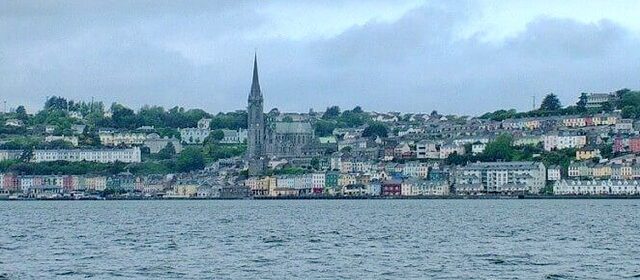
Bob and I awoke to a fine drizzle the next morning, so rather than pursue the harbour boat tour first off, we headed to The Titanic Experience where visitors are invited to retrace the footsteps of the Queenstown passengers who boarded the Titanic on its maiden voyage. Cobh Town was known as Queenstown from 1850 until 1920.
The Titanic Experience is located in the original offices of The White Star Line, the location from which the last 123 passengers departed Cobh (Queenstown) and boarded the Titanic. They came from all corners of Ireland to Cobh, a town with a maritime heritage stretching back hundreds of years.
As luck had it, we arrived at the museum just as it was opening, so we managed to have the place to ourselves and had a chance to see and learn so much about the life and times of Titanic leading up to the day when the ship set sail from Cobh Town for the last time.
Since the early days of mass emigration, deportation and ship building, it has remained virtually unchanged with the streetscape and piers almost a mirror reflection of the past. St. Colman’s Cathedral dominates the quay and has serenaded, with its 49-bell carillon, endless numbers of ships that were either arriving at or departing from Cobh Harbour.
Even before entering The Titanic Experience, this giant billboard set the tone for the upcoming experience. Of the 123 passengers that boarded the Titanic in Queenstown, the ship’s last port of call, the majority of them were third class passengers traveling to America in the hopes of beginning a new life. There were only seven second class passengers and three that could afford first class cabins.
Cobh is the home of Ireland’s only dedicated cruise terminal because of the safe haven provided by Cobh Harbour, one of the world’s largest natural harbours.
This is a picture of RMS Titanic on Wednesday, April 11, 1912, sitting in Cobh Harbour off Queenstown (Cobh). At 1:00 p.m. on that day, with 2,224 passengers and crew, which included the new passengers who boarded at Cobh Harbour, Titanic departed and sailed towards disaster.
Here we have a snapshot of the iceberg thought to have been hit by Titanic. The iceberg was photographed on the morning of April 15, 1912.
As Bob and I began our “voyage” into the past, we were handed a ticket bearing the name of one of the 123 passengers that boarded the ship on that fateful day in 1912. The instructions given regarding the details of “boarding” such a magnificent ship had our excitement growing, and as we were ushered through elegant first class quarters into carefully recreated third class cabins, the anticipation that those first passengers had for the long journey ahead was palpable.
The mood changed as we progressed from one section of the “ship” to another. By times, lively Irish music lifted our spirits whereas, at other times, detailed vignettes depicting the cramped third class quarters and on board rivalries sobered our frame of mind. Snippets of the history that unfolded on board Titanic were shared with us, ending with the horror of that fateful night when the ship went down.
At the end, we exited onto the quay adjacent to the former White Star Line offices. A luggage cart that was employed to move the baggage of the 123 passengers still sits at dockside as a stark reminder of their unrealized hopes and aspirations.
Adjacent to the quay is the former White Star Line wharf where the 123 passengers waited for transport vessels to take them out to the waiting Titanic where it sat moored in the harbour. For both Bob and me, standing there on the remains of that wharf was a very poignant moment.
Close to the end of the exhibit, one of the interactive displays allowed us to find the passenger’s name from our “ticket” and discover the outcome of their journey aboard the fated ship. In fact, we could look up each passenger’s name, of those people who had boarded from Queenstown, and learn a little bit about their life and what became of them. It was rather uplifting to find that the person named on my ticket, Mary McGovern, aged 22, actually survived the sinking of the Titanic, whereas the passenger, whose name appeared on Bob’s ticket, Martin Gallagher, aged 29, was lost at sea.
In order to regroup and reflect on what we had learned, Bob and I walked the main street of Cobh and decided to search for one of the scheduled boat tours out to where Titanic had its last anchorage.
As we walked the streets and piers of that very old seaport,
we were constantly reminded that not much has changed there since Titanic anchored off its shoreline a hundred years ago.
The early morning showers had all but disappeared, but we were no sooner on the water than we realized just how windy and cold it was. The lingering dampness in the air had us bundling up, but our spirits were still high. It was a good thing that we had fit in a warm lunch before setting sail.
The harbour tour retraces the movements of the two transport vessels that carried the 123 passengers from the harbour dock out to the waiting Titanic. For us, it was just a continuation of the Titanic Experience made even more real.
The Titanic actually moored off Roche point at the entrance to the harbour, almost exactly where the ship in the picture sits in the distance.
A number of factors influenced the captain’s decision to moor off Roche Point – the small number of passengers boarding in Queenstown, the additional 1.5 hours required to enter the harbour, and the need for the hasty delivery and pickup of mail bags. So, rather than delay, the passengers were ferried from the wharf to the Titanic via steam-powered boats called Liner Tenders. The Titanic dropped anchor at 11:30 a.m. and set sail again at 1 p.m.; everything was accomplished in 1 1/2 hours.
As we motored about the harbour, the captain of our vessel finally pointed out that RMS Titanic had been anchored off Cobh Town at about this location in the harbour.
It was hard to believe that a vessel of such renown once floated on the surface of that water where we were cruising.
Bob, who has been an active sailor throughout his life, and who has been caught up in a few of his own much smaller boating crises, things like sails blowing out, drive-shafts snapping in hurricane winds, capsizing, all the crazy unexpected moments of sailing, took time to put down the camera and reflect on what once took place there in Cobh Harbour. Another thing he pondered was that, in 1847, during the potato famine, his family, the McCann’s on his mother’s side, departed from Ireland for Canada across these same waters. This truly was a moment for pause.
As we headed back to Cobh Town, other vessels moved across the waters where Titanic once moored.
Three days after leaving Cobh Harbour, on the night of April 14, 1912, 375 miles south of Newfoundland, Canada, Titanic struck an iceberg at 11:40 p.m. and sank.
Although 710 people survived the disaster, a staggering 1,500 people lost their lives.
On our approach to the dock in Cobh Town, a modern day cargo ship headed out onto the Atlantic Ocean. Cobh Harbour is a routine stop for ocean-going vessels on their transatlantic crossings.
And so, as we pulled up to the dock in Cobh, Bob and I felt sad for those of the 123 Irish passengers that said goodbye to this pretty town, not realizing that it would be the last land that they would ever see.
Today, RMS Titanic and all those who lost their lives are remembered with a memorial in a public square in downtown Cobh Town. Even a hundred years later, the people of Cobh state that they still feel the loss of the Titanic, its passengers and crew, many of whom once called Ireland their home.
Frame To Frame – Bob and Jean

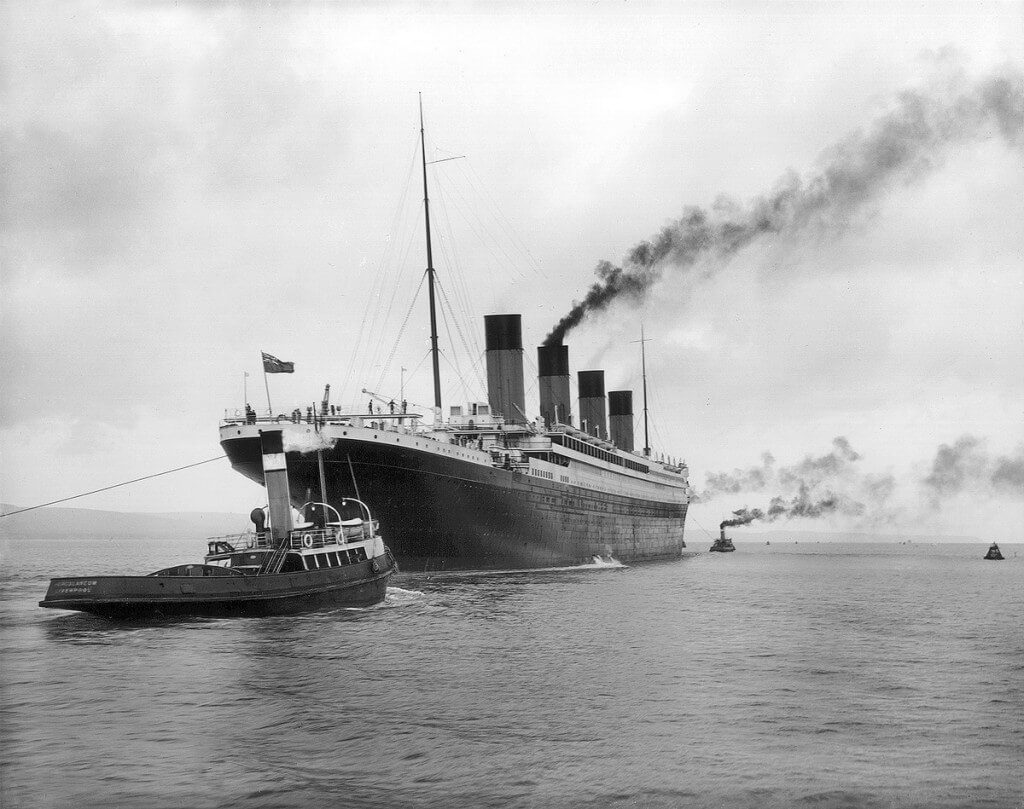
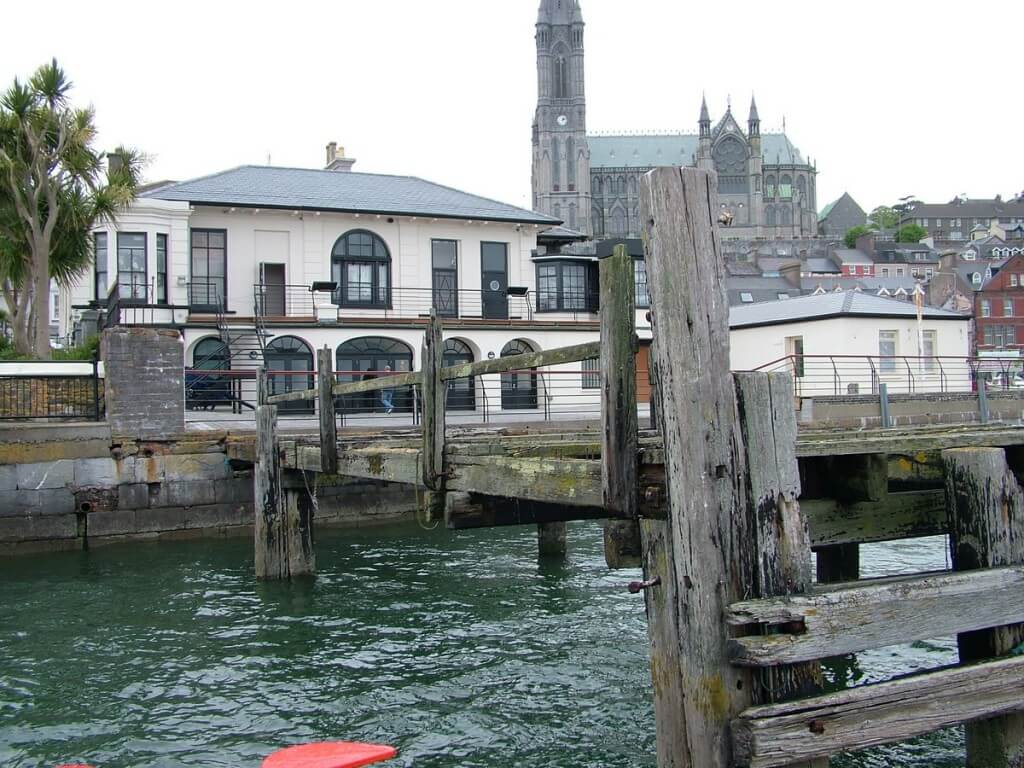
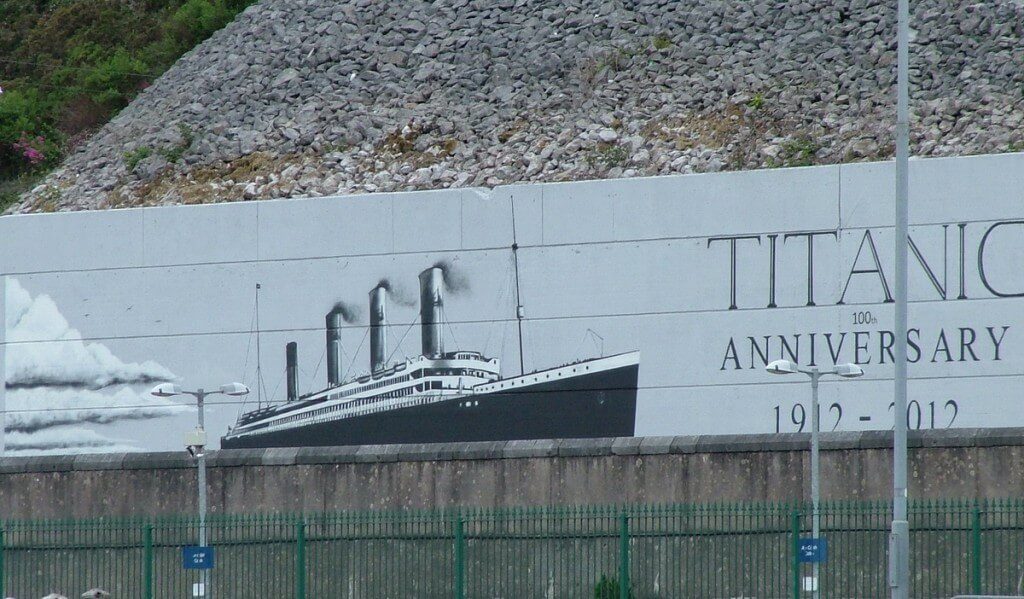
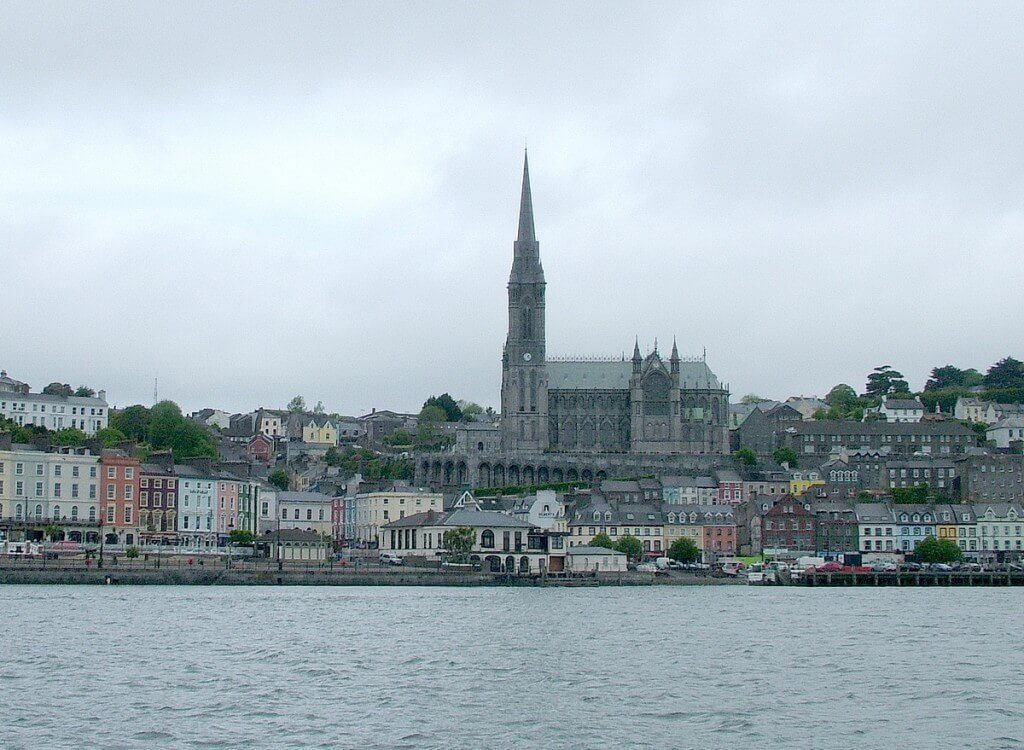
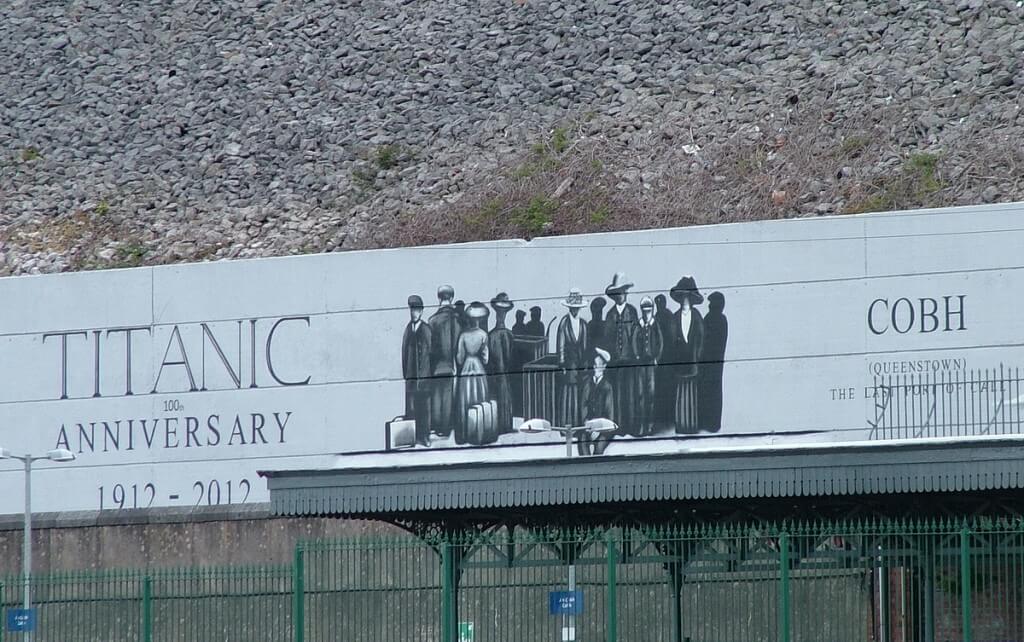
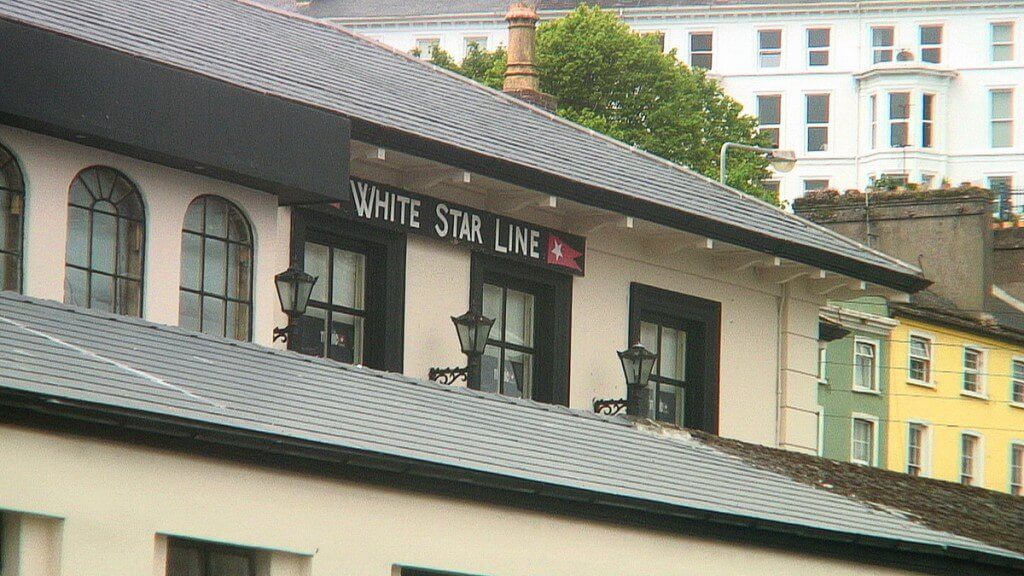
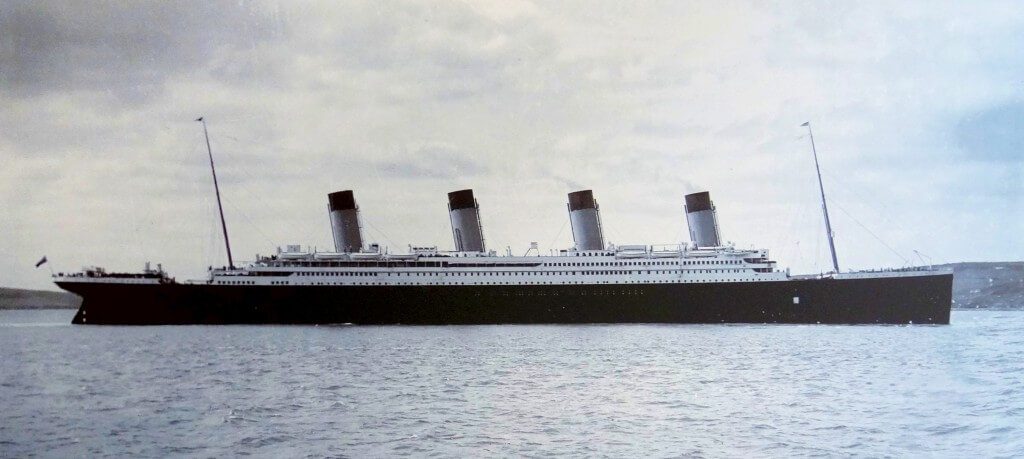

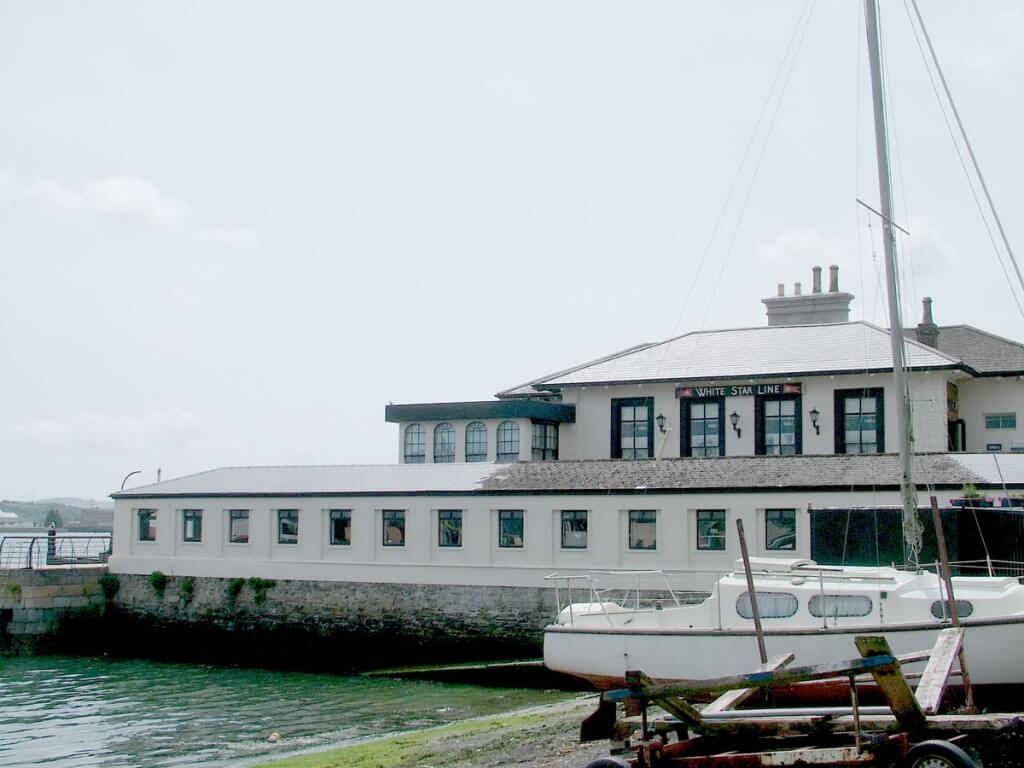
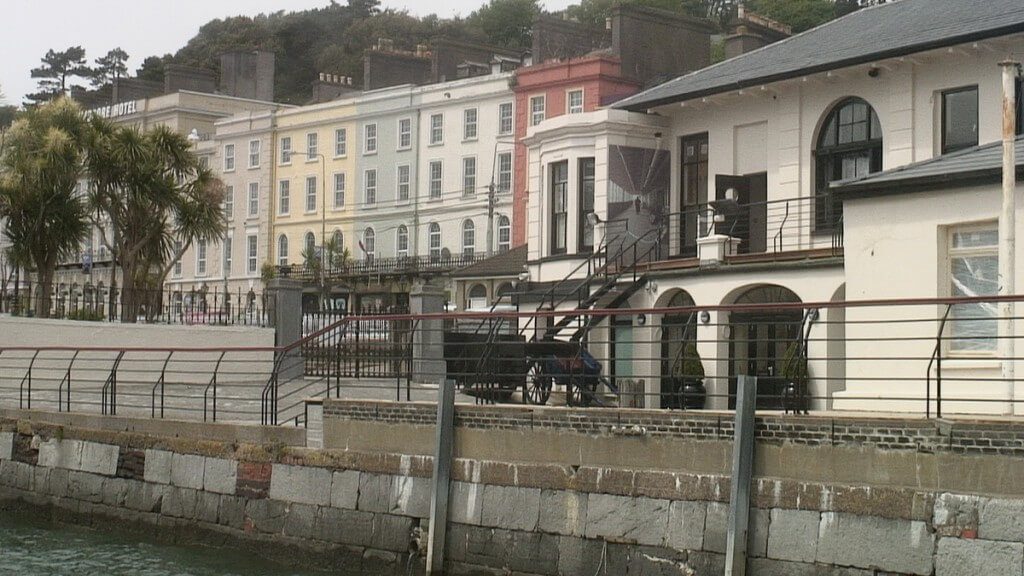
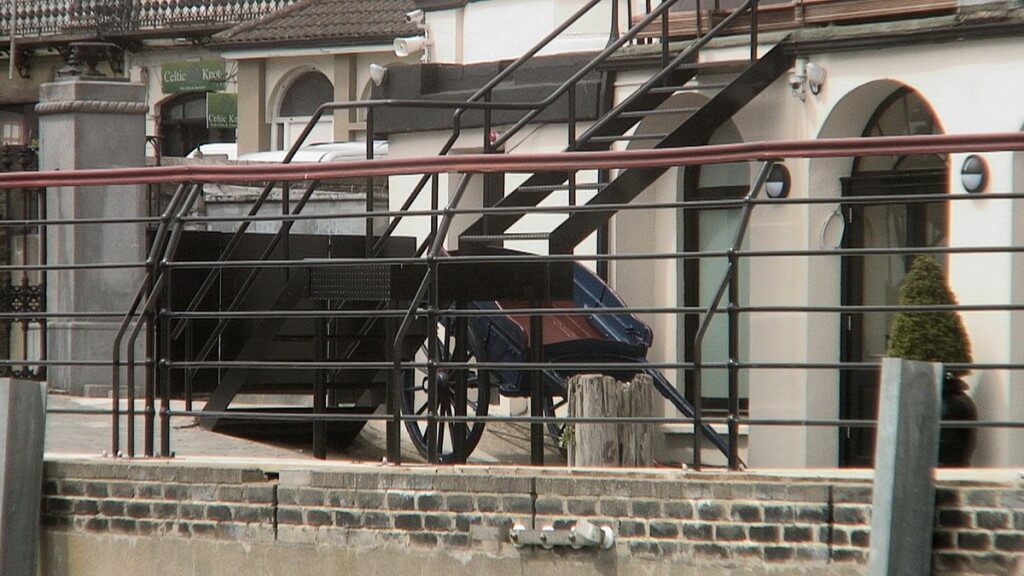
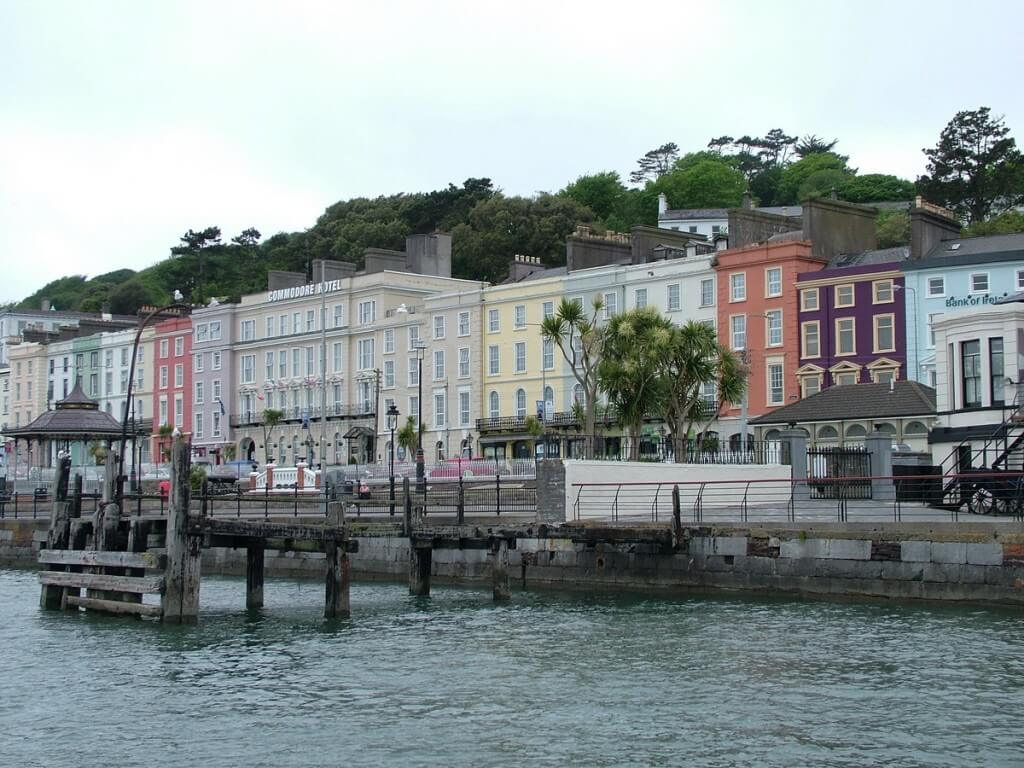
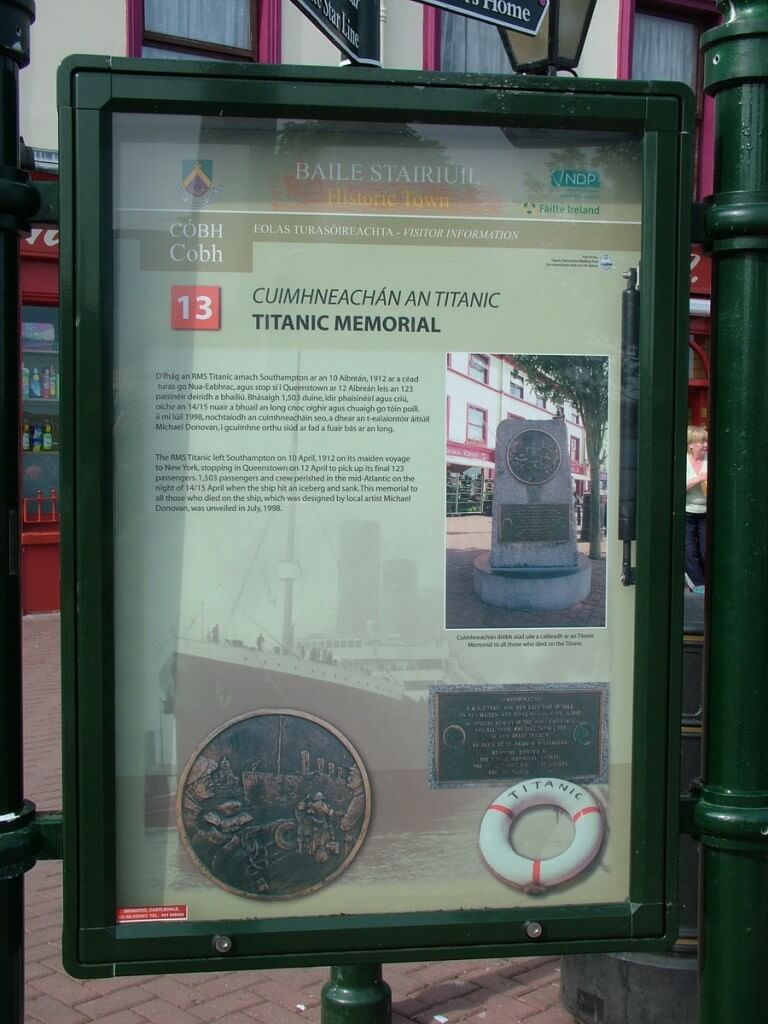
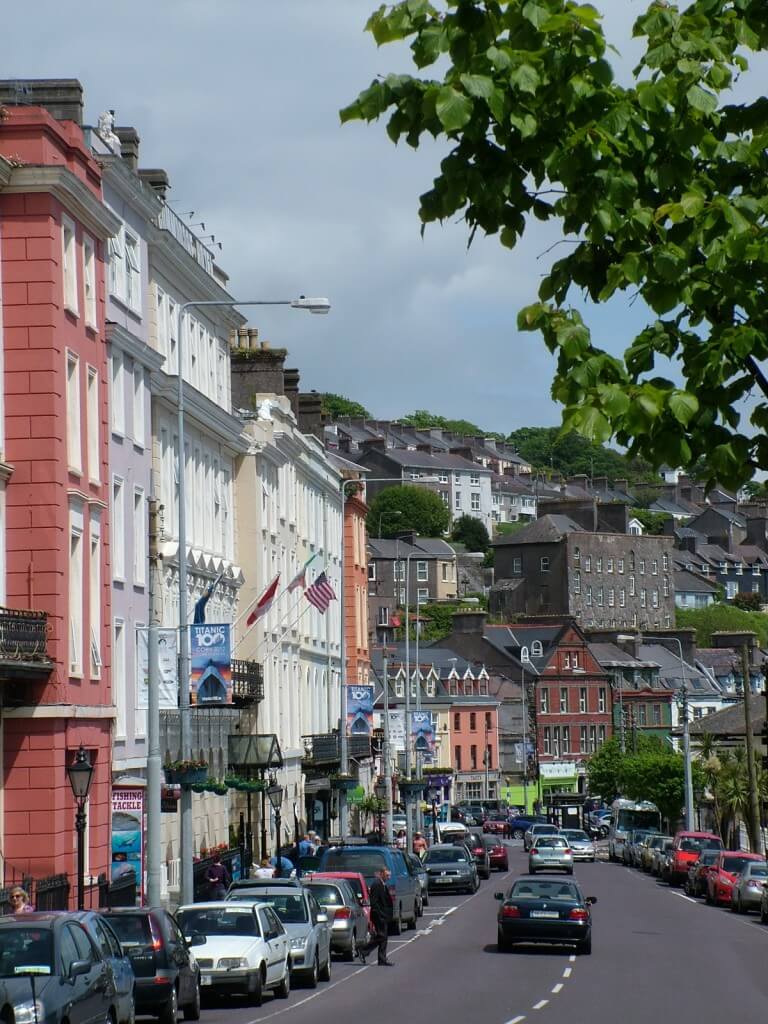
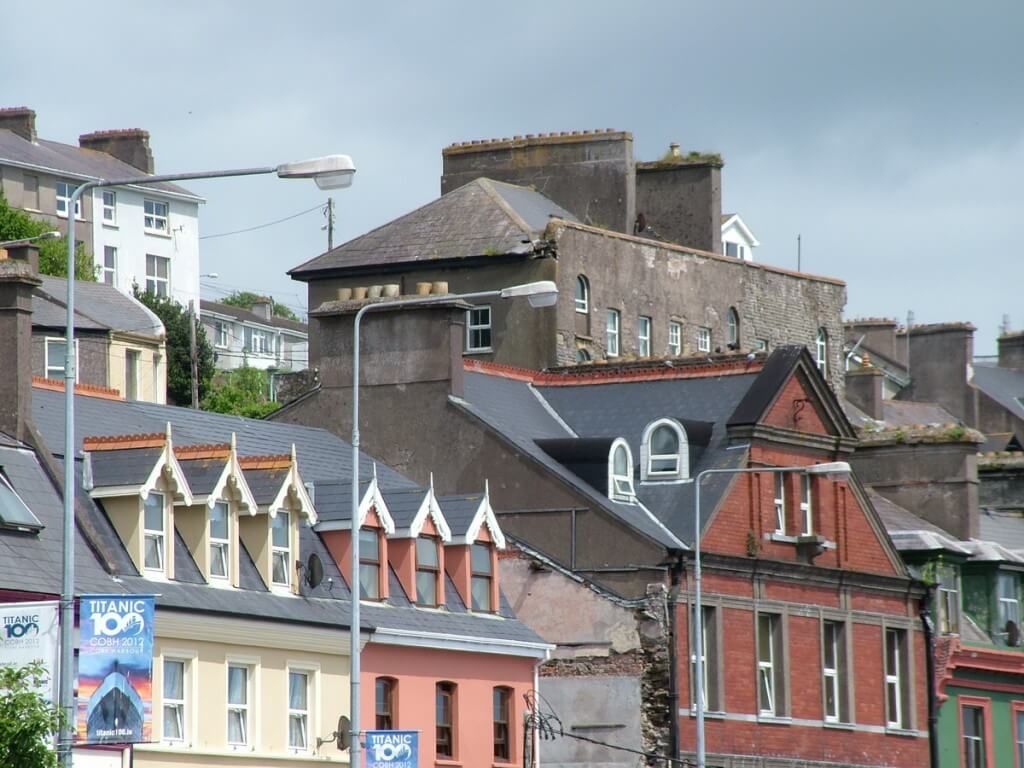
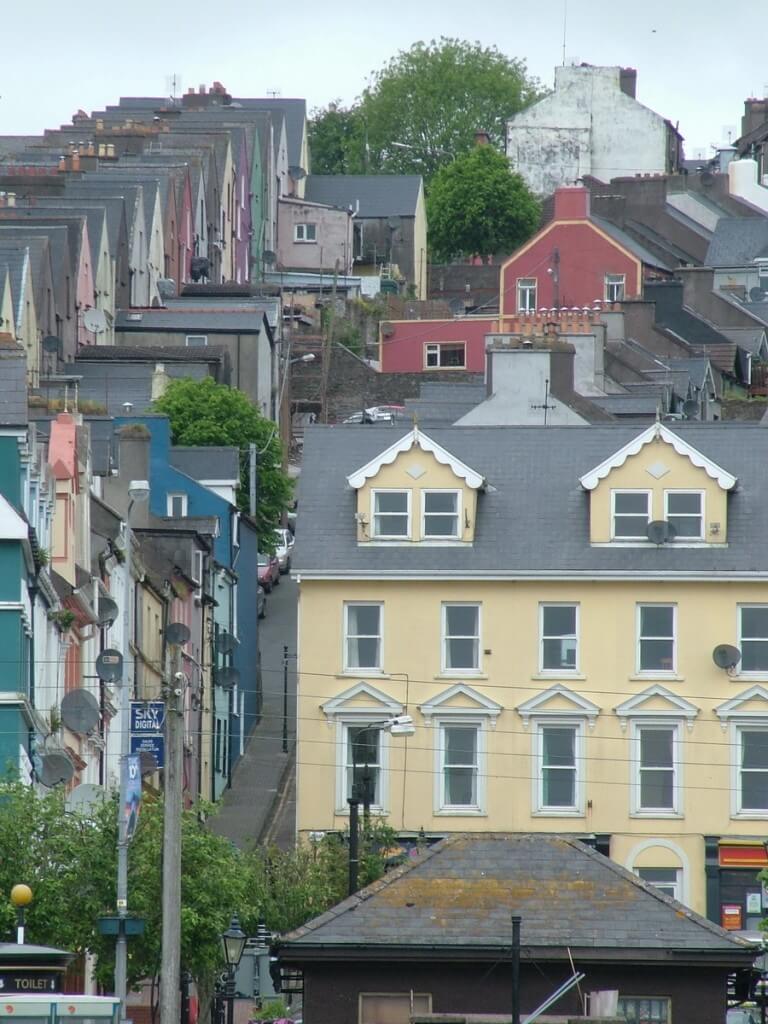
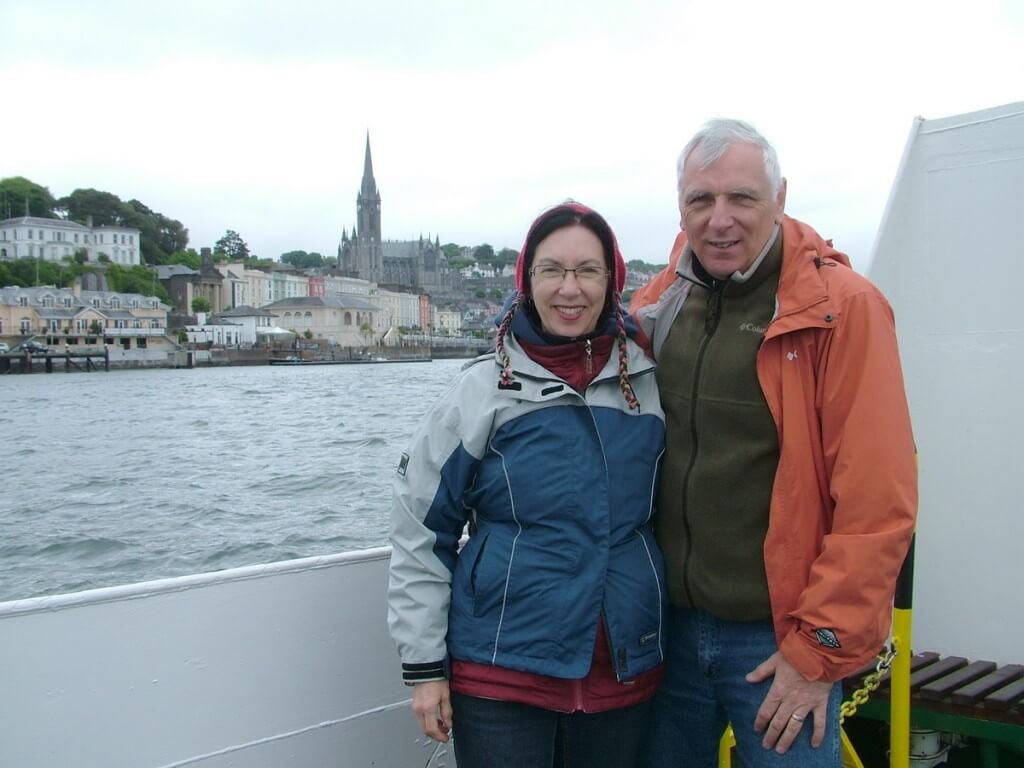
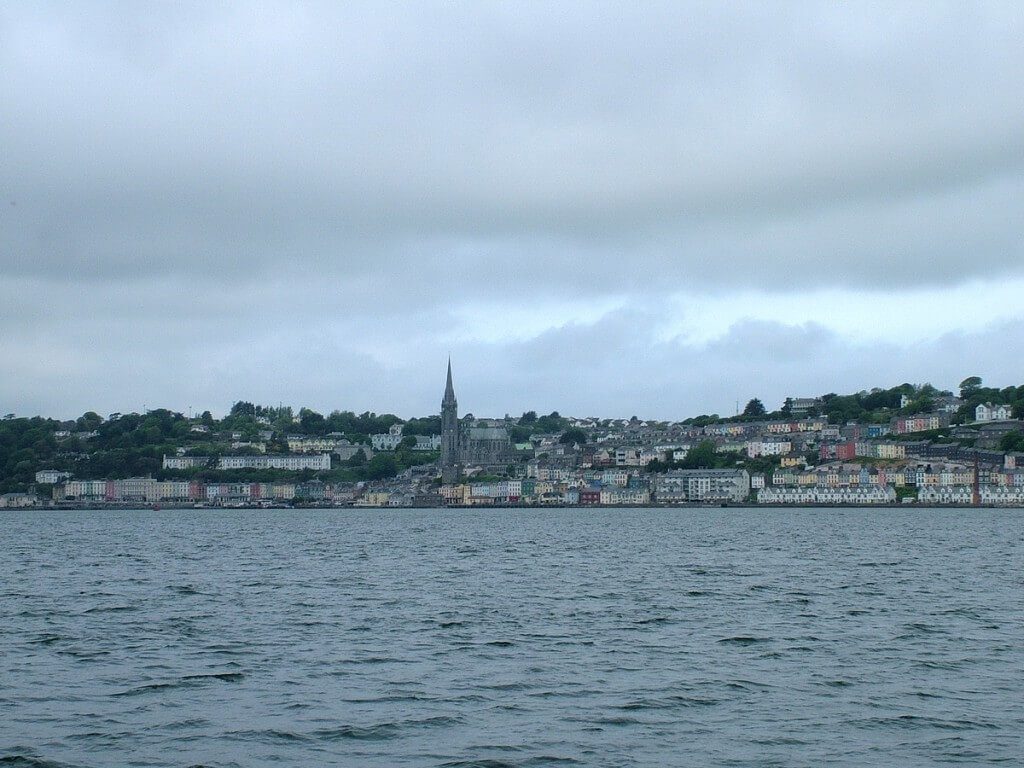
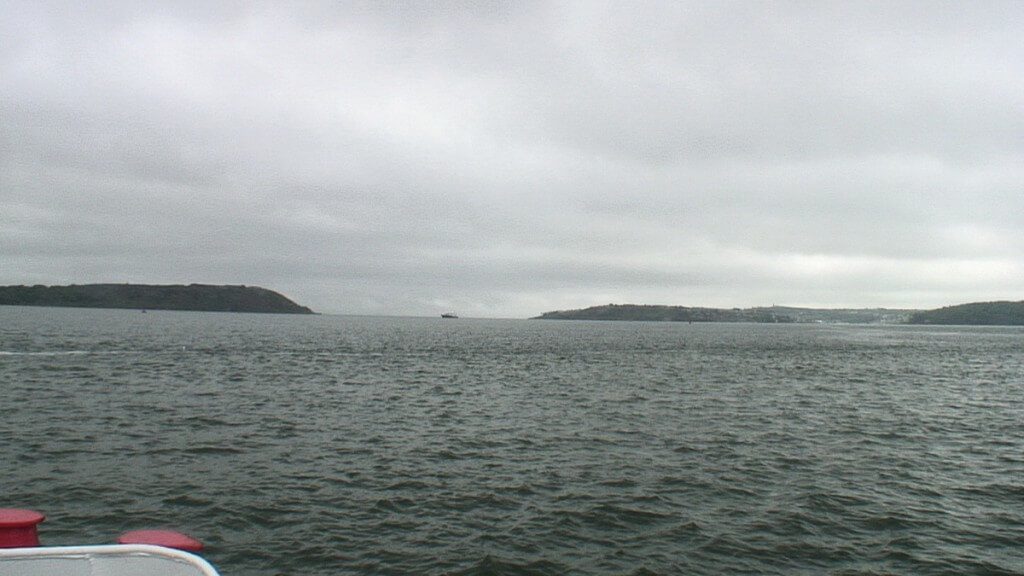
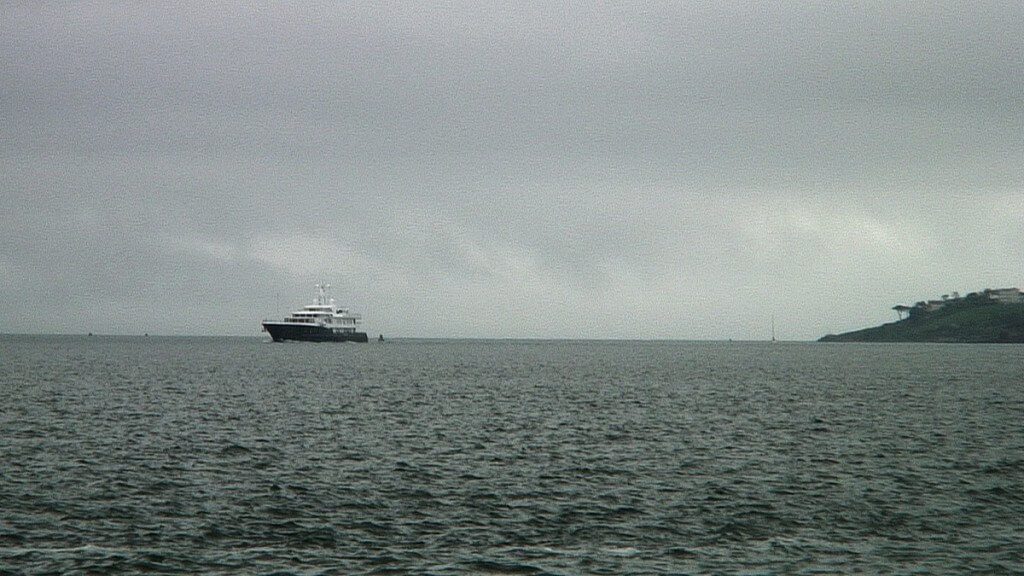
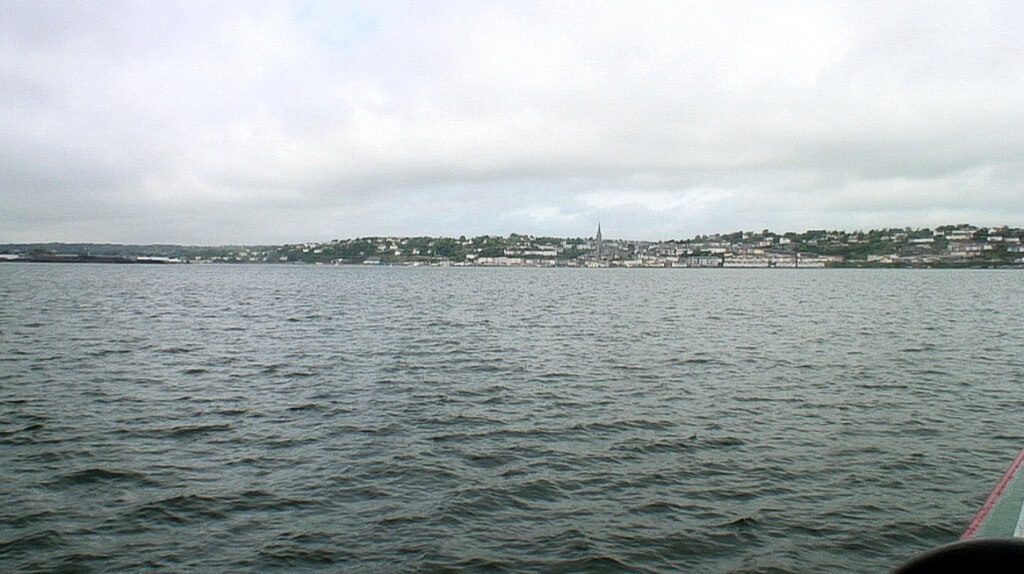
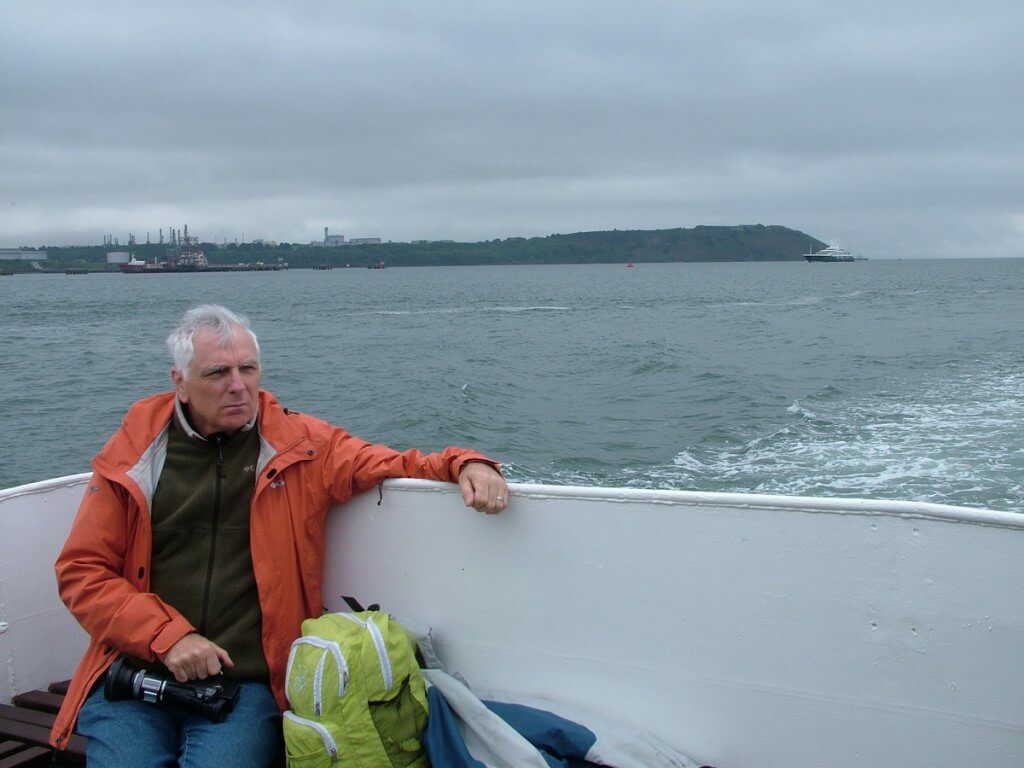
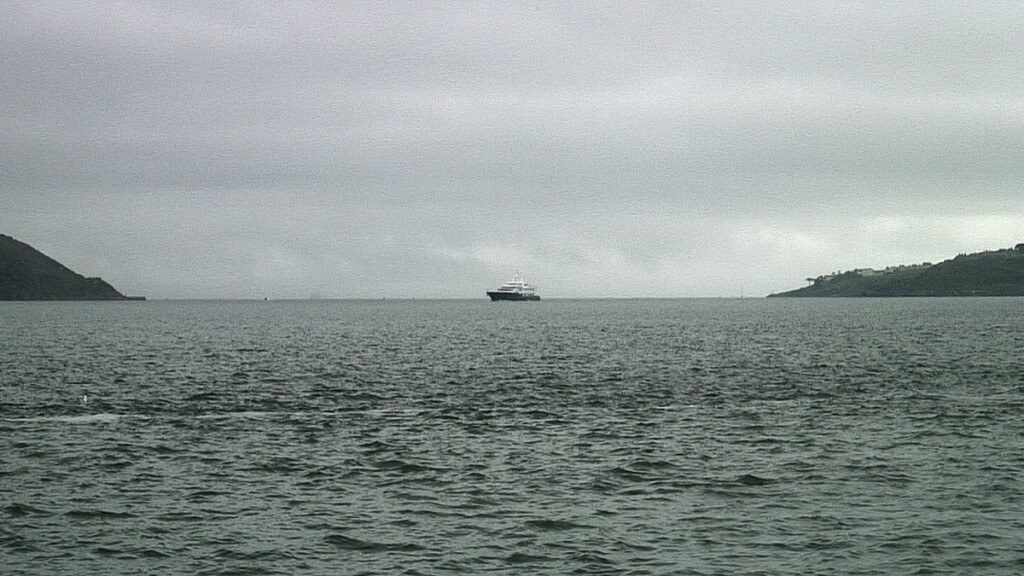
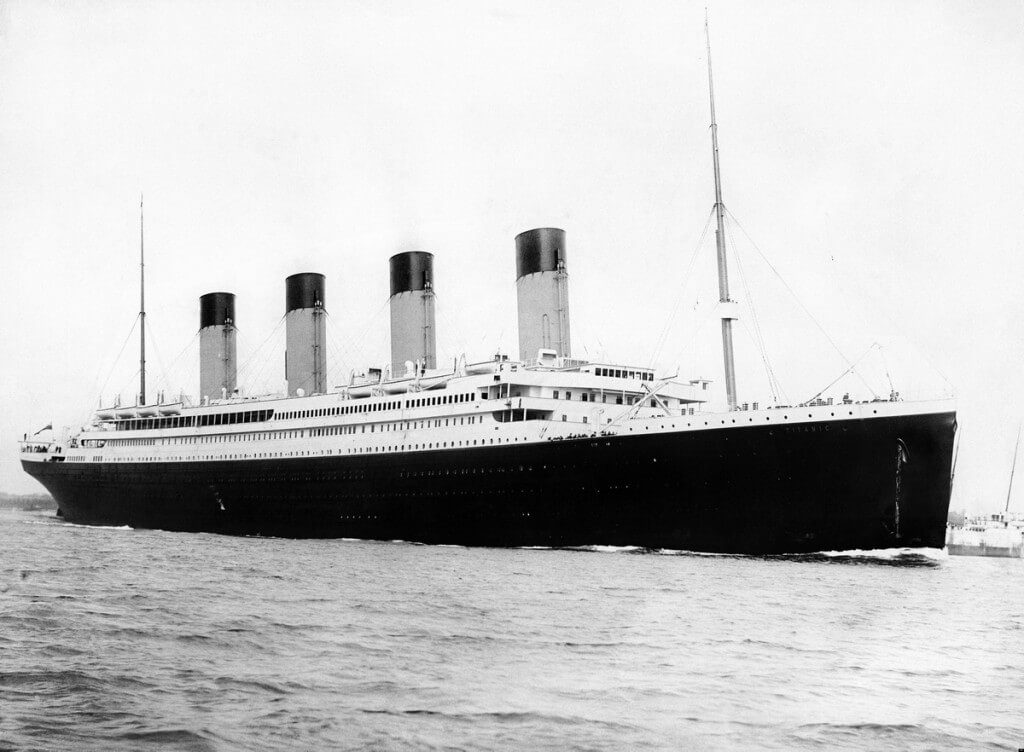
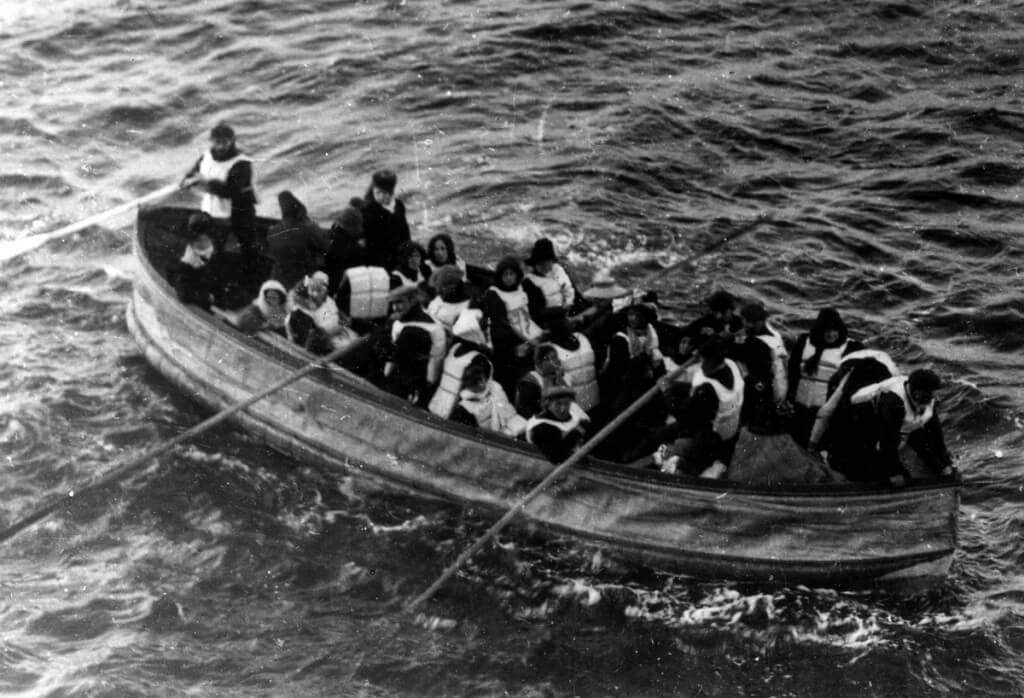
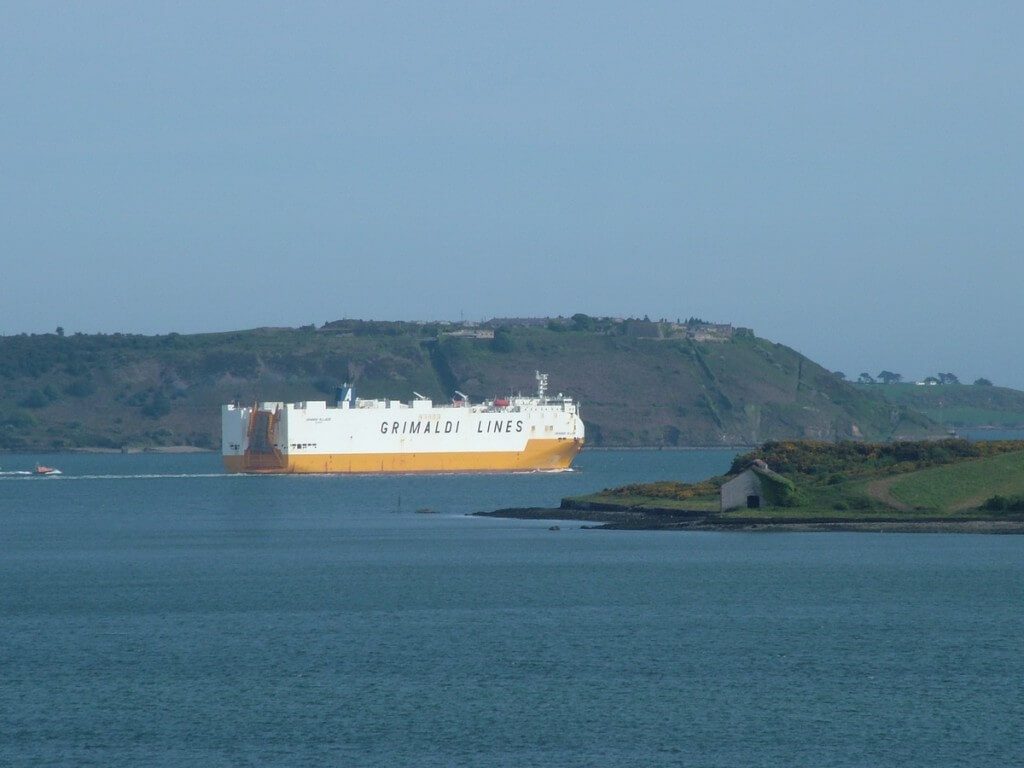
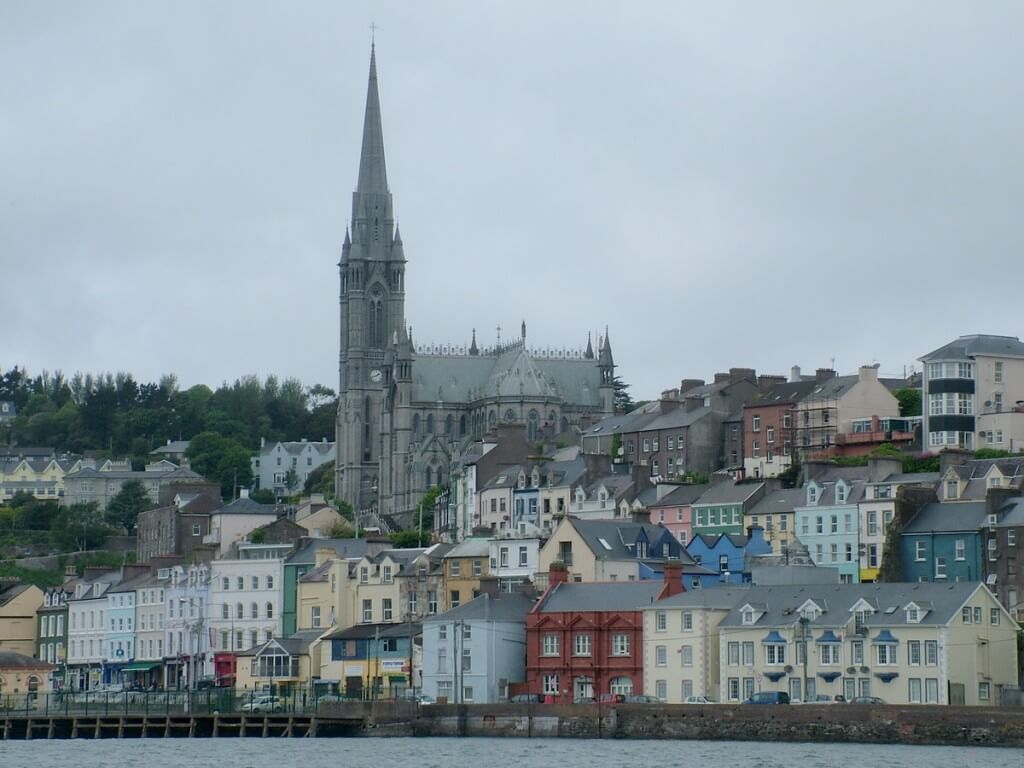
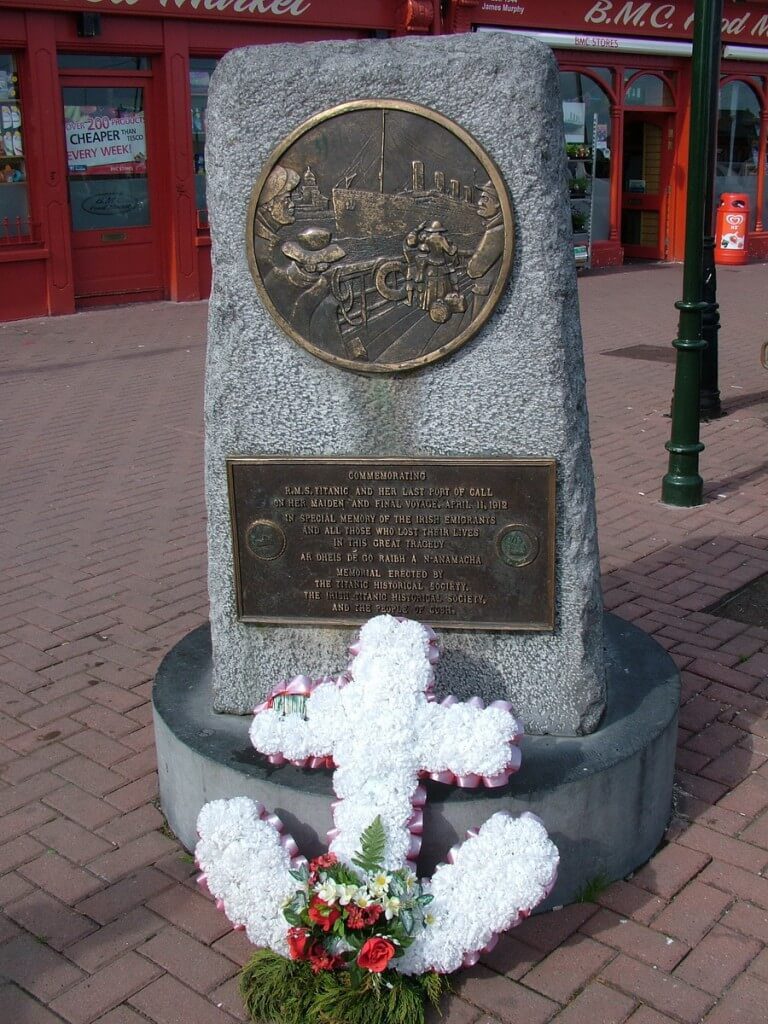
From Facebook
Discover Ireland Canada wrote:
A Great post Bob, thanks for sharing it with us!
Cobh town is a beautiful, quaint town with an extensive maritime past: http://goo.gl/BI5IHO. I see you also visited County Wicklow during your Ireland trip! http://goo.gl/4qXSv2 What did you get up to while you were there?
Bob wrote:
Thanks. Cobh Town is truly charming and in many ways very much like some of the areas along our own Eastern seaboard.
In County Wicklow, Jean and I spent time hiking and touring that included three days at Glendalough. That valley, with its lakes and mountains, is one of the most beautiful places we visited in all of Ireland.
After Glendalough, we spent a month driving full circle around the island, including a stop in the village in Armagh from where my family, the McCann’s, left in 1847. Our travels included County Waterford and The House of Waterford Crystal, in Waterford. What an amazing place.
From Facebook
Discover Ireland GB wrote:
Great post… Cobh Town in County Cork is a beautiful town with an extensive maritime past: http://bit.ly/1dJ0hx7. Did you get a chance to visit another important place in Titanic history; Belfast while you were in Ireland? The Titanic Belfast Visitor Centre stands in the dock where The Titanic was built and commemorates The Titanic and Belfast’s shipbuilding history: http://bit.ly/19zhKVG. Also, The Titanic’s tender ship, the SS Nomadic, is the last remaining White Star Line ship and is currently in Belfast’s Hamilton Dock, open for visitors: http://bit.ly/182v5Xv.
Pingback: A day out in Cobh – what not to miss. | Got Ireland
A beautifully written & moving account of your experience of Cobh. Thanks for visiting and sharing! @VisitCobh